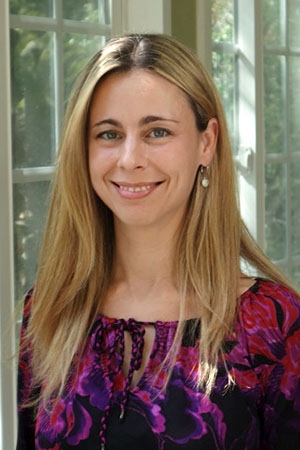Saving Lives with Smart Phones
April 18, 2017 / by Keith Demolder- Opinion
Diagnosed with a rare heart condition after delivering her third child in 2016, Kristie Holmes, adjunct associate professor at the USC Suzanne Dworak-Peck School of Social Work, learned first-hand that attentive care can be the difference between life and death.
“I had no reason to ever check my heart,” she said. “No family history of heart disease or problems. I went to physical therapy after birth for neck pain, back pain, jaw pain, cold sweats – which turned out to all be symptoms for women’s cardiac issues.”
Holmes nearly lost her life to post-natal complications. She was placed on a United Network for Organ Sharing (UNOS) list and will eventually require a transplant.
However, her experience with advocacy for post-natal care started in the lobby of a convention center halfway around the world. Nearly five years earlier, at the Global Health Dynamics Roundtable in Geneva, Switzerland, Holmes became part of a technology-based breakthrough in women’s health care.
According to recent statistics from the World Health Organization, about 830 women die each day due to complications in pregnancy and childbirth, and nearly all occur in developing countries. To combat these losses, eHealth and gender-based health experts Drs. Coumba Touré, Véronique Inès Thouvenot and Jordi Serrano Pons founded Zero Mothers Die (ZMD), a global partnership initiative to save the lives of pregnant women, new mothers and their babies by implementing access to health care programs through mobile technology. The initiative is part of the United Nation’s next phase of sustainable development goals for 2030 – to reduce infant and maternal mortality, now global goal number three.
“The whole family is affected when a mother dies,” Holmes said. “The whole family is affected when they lose a child. Everyone wants to put it into a gender basket, but child care costs affect the entire family.”
ZMD’s mobile app provides essential maternal and newborn health information to both expectant and new mothers, as well as health care workers providing care to their communities.
“The app has made it so mothers, community health workers, public health workers and providers are all connected,” Holmes said. “If they have a smartphone, they can connect to a lot of information at their fingertips to get better help.”
ZMD distributes about 10,000 phones per year to women globally who are considered to be at high risk, delivering important pre- and post-natal information at the right time, with a goal to distribute 100,000 phones by 2030. Women in the ZMD program also receive free minutes donated by Airtel.
In some parts of the world, a woman having a valuable smartphone can be dangerous, so to thwart potential black-market theft and re-sale of these mobile phones, ZMD made them pink to discourage men from wanting them.
Holmes’ work as a researcher and ZMD representative has allowed her to develop programs in multiple African countries, assisting thousands of women and their children. Her own near-death experience has provided further motivation for her to ensure that no more mothers die from a lack of proper medical attention.
“Before I was focusing on research, and now I’m focused on advocacy,” she said. “I’m a mother trying not to die, so I’m doing what I can to make sure that mothers all over are receiving the care they deserve.”
To reference the work of our faculty online, we ask that you directly quote their work where possible and attribute it to "FACULTY NAME, a professor in the USC Suzanne Dworak-Peck School of Social Work” (LINK: https://dworakpeck.usc.edu)
